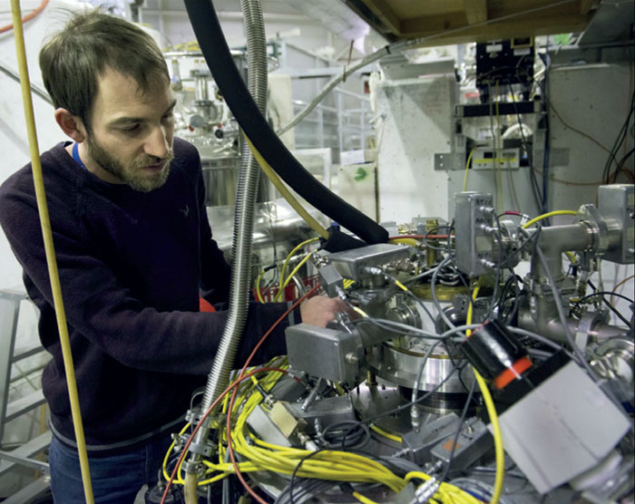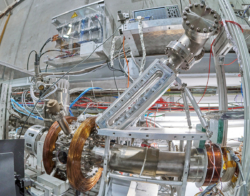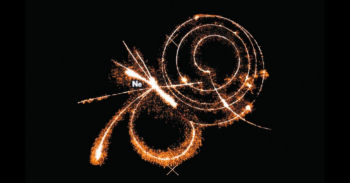
The ATRAP experiment at CERN has made the first measurement of the velocity of slow antihydrogen atoms. This is an important step towards the goal of producing antihydrogen atoms cold enough – that is, slow enough – for precision spectroscopy.
Both the ATRAP and ATHENA experiments at CERN’s Antiproton Decelerator announced the production of large numbers of “cold” antihydrogen atoms in 2002. While these atoms were certainly much colder than those first observed at CERN in 1995, their actual energy was not known. Now the ATRAP collaboration has demonstrated a technique for determining the velocity of those antihydrogen atoms that pass through an oscillating electric field without ionizing.
In ATRAP, antihydrogen atoms form in a nested Penning trap and then move through an electric-field region prior to detection; only those atoms not ionized in the field are detected. The measurement of the atoms’ velocity depends on observing how the number of atoms detected varies with the oscillation frequency of a time varying field superimposed on a static field. The slowest atoms will be ionized and never reach the detector, while faster atoms may pass through unaffected depending on the phase of the field they encounter; as the frequency of the oscillating field is increased, fewer atoms will move fast enough to remain unionized. The team found that the most weakly bound atoms to make it through to detection have an energy of 200 meV. This corresponds to a velocity about 20 times higher than the average thermal velocity at a temperature of 4.2 K (Gabrielse et al. 2004). The speed of more tightly bound states, which could have lower velocities, could be measured by the same method with a higher static field, but this would require more time.
Further reading
G Gabrielse et al. 2004 Phys. Rev. Lett. 93 073401.





